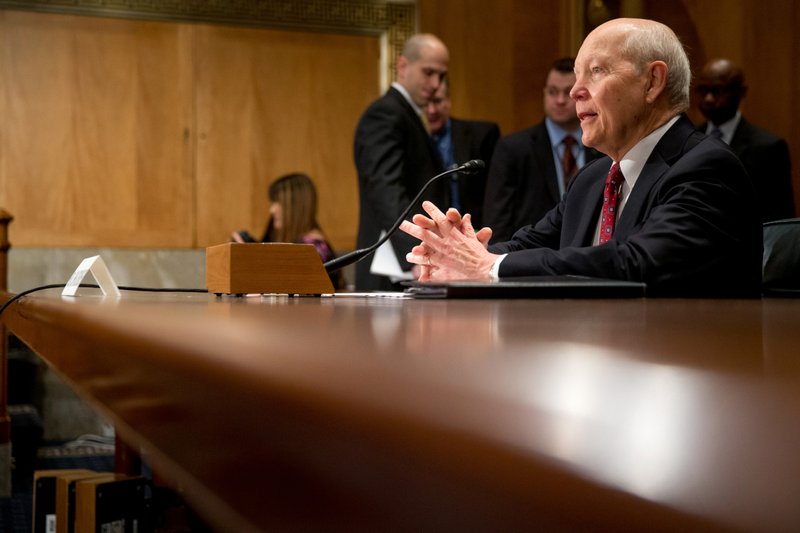WASHINGTON -- House leaders used Wednesday's tax filing deadline to pass a package of bills designed to protect taxpayers from potential abuse by the Internal Revenue Service, a response to recent scandals at the agency.
One bill would prevent IRS employees from using personal email accounts for official business. One would enact a taxpayers' bill of rights, and another would require the tax agency to fire employees caught targeting individuals or groups based on their politics.
In all, the House passed eight bills and sent them to the Senate. Seven were passed without recorded votes, with no opposition.
The other bill was passed by a vote of 424-0. It would require federal contractors to certify that they don't have a "seriously delinquent tax debt."
House Republicans said the bills were part of their efforts to "rein in the IRS."
"This marks a major step forward in our common quest to strengthen transparency and accountability at the IRS, an agency in desperate need for a complete makeover and cultural change," said Rep. Peter Roskam, R-Ill., chairman of the Ways and Means' Subcommittee on Oversight.
In 2013, the IRS acknowledged that agents had improperly singled out conservative groups for extra scrutiny when they applied for tax-exempt status during the 2010 and 2012 elections. An inspector general's report cited poor management in allowing it to happen, and the Justice Department and several committees in Congress investigated.
Much of the agency's leadership has since been replaced, including the commissioner. None of the investigations has publicly produced evidence that people outside the IRS directed the targeting of conservative groups or knew about it.
IRS Commissioner John Koskinen said the agency has already addressed many of the issues raised by the bills.
"We've put in place all the recommendations of the inspector general to make sure that the mistakes that happened in properly looking at criteria for how to respond to an application shouldn't have happened and it shouldn't happen again," Koskinen said Wednesday.
"At this point I think my response is that it's important for the public to understand that we've taken these responsibilities seriously, and wherever there were legitimate points raised, we've fixed them," Koskinen said.
House Democrats blocked a bill that would prohibit federal workers from having a "seriously delinquent tax debt."
Federal workers and retirees owed more than $3.5 billion in unpaid taxes last year, according to IRS statistics. However, the delinquency rate was 3.1 percent, well below the rate for the general public, which was about 8 percent.
"My Republican colleagues seem to believe there is a serious problem with federal employees not paying their taxes. There is not," said Rep. Elijah Cummings, D-Md. "This legislation is designed to demonize federal employees rather than help the government collect taxes."
The vote on the bill was 266-160 in favor. However, Republican leaders took up the bill under a procedure that requires a two-thirds majority to pass, and it fell short. The four representatives from Arkansas, all Republicans, voted in favor of the bill.
The bill concerning personal email accounts came from a Ways and Means investigation that found several IRS workers had sent confidential taxpayer information to personal email accounts. Among them was former IRS official Lois Lerner, a central figure in the committee's investigation.
Lerner, who has retired, led the division that processed applications for tax-exempt status.
IRS policy already prohibits workers from using a personal email account to transmit confidential taxpayer information. The bill would make the policy a law.
The use of personal email accounts by government officials became a hot issue after it was disclosed that Democratic presidential candidate Hillary Rodham Clinton used one to conduct government business while she was secretary of state. Clinton has turned over thousands of emails to the State Department, which is reviewing them before it makes them public.
Republican Jeb Bush, a potential candidate for president, also used a private email account when he was governor of Florida. Bush has posted online more than 275,000 emails from his two terms in office.
A Section on 04/16/2015

